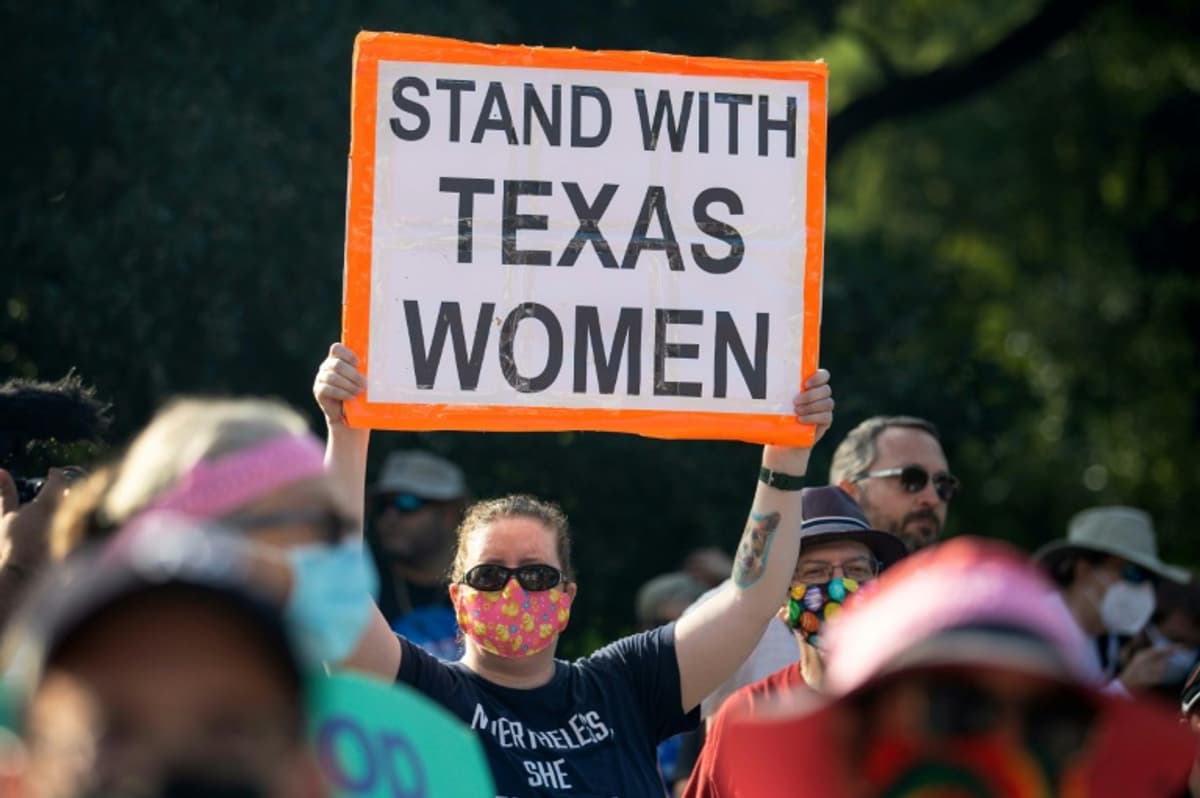Lunch Break Laws in Texas: What Employees and Employers Need to Know
When lunchtime rolls around at work I always wonder what the law actually says about taking a break in Texas. With busy schedules and packed to-do lists it’s easy to feel unsure about my rights when it comes to stepping away for a quick meal. I know I’m not alone—many Texans want to understand how state and federal rules affect their daily routines.
Whether I’m grabbing a sandwich at my desk or heading out for a breather I want to make sure I’m staying within the law. Knowing the basics about lunch break laws in Texas helps me protect my time and avoid any workplace confusion. Let’s break down what every worker should know about lunch breaks in the Lone Star State.
Overview of Lunch Break Laws in Texas

Overview-of-Lunch-Break-Laws-in-Texas
Texas doesn’t require private employers to provide lunch or meal breaks for adult employees. No state statute mandates specific break periods, and Texas law defers to federal guidelines under the Fair Labor Standards Act (FLSA). The FLSA doesn’t obligate employers to grant meal or rest breaks, but once a break longer than 20 minutes occurs, employers don’t have to compensate employees for that time, provided they’re fully relieved of work duties.
Employees under 18 have different protections under the Texas Child Labor Law. Minors working more than 5 consecutive hours must receive at least a 30-minute meal break, according to Texas Workforce Commission guidance.
Government employees sometimes operate under separate municipal or agency policies, but no broad Texas law establishes a universal right to a lunch break for public-sector workers.
The following table summarizes key break requirements:
| Category | Mandatory Lunch Breaks | Applicable Law/Regulation | Paid/Unpaid |
|---|---|---|---|
| Private Sector | No | None (FLSA applies) | Employer’s discretion |
| Federal Compliance | No | Fair Labor Standards Act | Not required |
| Minors (under 18) | Yes, after 5 hrs | Texas Child Labor Law | Unpaid |
| Government Workers | No (unless policy) | Agency/municipal policies may apply | Policy dependent |
No specific exceptions exist for industries such as casinos in Texas, as commercial casinos aren’t legal under current state law. Any break rules for gaming establishments in bordering states would depend on that state’s specific labor statutes.
Federal vs. State Regulations
Federal and Texas law set different standards for lunch break rights. I separate federal labor requirements from Texas-specific regulations in the sections below.
How Federal Labor Laws Apply
Federal labor laws, primarily the Fair Labor Standards Act (FLSA), don’t require lunch or meal breaks for adult employees. The FLSA applies to most private employers in Texas and nationwide. When employers offer short breaks (5–20 minutes), the FLSA considers this paid work time, so I receive my standard wages during these periods. Meal breaks of 30 minutes or more remain unpaid if I’m fully relieved from work duties throughout the break. The FLSA mandates stricter rules only for minors or specific hazardous work settings.
| Break Duration | Federal Paid Status | All Workers Covered |
|---|---|---|
| Under 20 min | Paid; counts as work time | Most, excluding self-employed |
| 30 min or more | Unpaid; if no duties | Most, excluding self-employed |
Texas State-Specific Rules
Texas law doesn’t require private employers to provide lunch or meal breaks to adult workers. Only the Texas Child Labor Law mandates meal breaks for minors. If I’m under 18 and work over five consecutive hours, I must get a 30-minute break. Public-sector and government employees follow policies established by their agencies rather than a Texas-wide statute, so my experience as a government worker may differ based on local policy, not a state requirement.
| Category | Required Meal Break | Condition |
|---|---|---|
| Adults (private sector) | No | None |
| Minors (under 18) | 30 min | After 5 consecutive hours |
| Public-sector employee | Varies | Agency or municipality-specific |
No casino-specific labor law applies in Texas because the state doesn’t have legal, state-operated casinos. Any casino guidelines about breaks outside of tribal or charitable gaming must follow general Texas and federal labor laws for lunch breaks.
Employer Responsibilities and Employee Rights

Employer-Responsibilities-and-Employee-Rights
Employers in Texas follow federal guidelines for lunch breaks, with some exceptions for minors. Employees often look for clarity on compensation during breaks and statutory protections, especially when work hours extend through meal times.
Paid vs. Unpaid Lunch Breaks
Paid lunch breaks are rare for hourly workers in Texas, except when a break lasts less than 20 minutes or an employee keeps working during the meal period. Unpaid breaks apply to meal periods lasting 30 minutes or more, if employees are relieved from all duties. Employers must count breaks as paid time when employees aren’t fully relieved of responsibilities or when breaks are short.
| Break Type | Duration | Paid | Employee Fully Relieved | Regulation Source |
|---|---|---|---|---|
| Short rest break | 5–20 minutes | Yes | No | FLSA |
| Meal break (uninterrupted) | 30+ minutes | No | Yes | FLSA, Texas Labor Code |
| Working lunch/meal | Any | Yes | No | FLSA |
Meal Break Provisions for Minors
Texas law requires employers to provide meal breaks for minors under 18. A 30-minute, uninterrupted lunch break becomes mandatory after five consecutive work hours. Employers can’t split or shorten this break, and supervisors risk penalties if they neglect compliance. These provisions aim to protect younger workers from fatigue and exploitation.
| Employee Type | Age Range | Work Hours (Consecutive) | Break Duration | Statutory Requirement |
|---|---|---|---|---|
| Minor | Under 18 | >5 | 30 minutes | Texas Labor Code § 51.014 |
| Adult | 18+ | Any | Not required | No state requirement |
Common Exceptions and Industry Variations
Lunch break regulations in Texas appear consistent under the law, but actual practices diverge across industries. I notice distinct standards for service, office, and public sectors based on operational demands and business policies.
Service Industry Standards
Service industry lunch break norms in Texas often favor short, paid breaks over longer, unpaid meal periods. Fast food chains, restaurants, and retail stores set policies reflecting busy hours and variable staffing. For example, I see 10–15-minute rest breaks in eight-hour shifts at some national food chains. However, unpaid meal breaks longer than 20 minutes occur only if employees are relieved of all duties; otherwise, that time is paid under FLSA (29 CFR § 785.18, 785.19).
Typical Service Industry Break Practice Table
| Workplace Example | Break Duration | Paid/Unpaid | Additional Policy Details |
|---|---|---|---|
| Fast Food Chains | 10-15 min | Paid | During non-peak business hours |
| Retail Stores | 15 min | Paid | One break per four-hour shift |
| Full-Service Restaurants | 30 min | Unpaid | Only if fully relieved of duties |
Office and Corporate Settings
Office and corporate break patterns in Texas rely on internal HR policies rather than legal mandates. I find most companies offer a 30–60-minute unpaid lunch break during standard 8-hour shifts. White-collar workers typically control their lunch timing, provided workloads allow uninterrupted breaks. Some tech firms or call centers align break times with scheduled meetings or business needs.
Typical Office Break Policies Table
| Workplace Example | Break Duration | Paid/Unpaid | Scheduling Notes |
|---|---|---|---|
| Large Corporations | 30–60 min | Unpaid | Employees choose within set hours |
| Call Centers | 30 min | Unpaid | Breaks scheduled for coverage |
| Tech Companies | 30–45 min | Unpaid | Flexible start/end times |
Industry variations stem from operational requirements and business policy rather than distinct legal exemptions. I continue to observe employers balancing workplace efficiency and employee needs within federal and state regulatory frameworks.
Legal Consequences for Non-Compliance
Employers in Texas face legal consequences if they disregard lunch break regulations for certain employees. Those employing minors risk both civil and criminal penalties when failing to provide the required 30-minute meal break for anyone under 18 working more than five consecutive hours, as set by the Texas Child Labor Law (Texas Labor Code § 51.013). Violations can trigger investigation by the Texas Workforce Commission (TWC). Administrative penalties usually reach up to $10,000 per violation, while repeat or willful offenses may result in criminal charges.
Federal law impacts all Texas workplaces, including cases when employers violate the Fair Labor Standards Act (FLSA). If employers don’t pay employees for short rest periods of 5–20 minutes or require duties during unpaid meal periods, the U.S. Department of Labor (DOL) can assess back pay and damages. FLSA violations also risk additional liquidated damages equal to amounts owed and, for willful violations, fines of up to $10,000 or criminal prosecution for repeat offenders.
Employee wage complaints, especially claims regarding improper lunch break compensation, often lead to DOL or TWC investigations. Recordkeeping violations, uncovered during audits, increase legal exposure for employers. Employees may file private lawsuits to recover unpaid wages or seek class-action status when systematic violations occur.
Table: Legal Penalties for Non-Compliance with Lunch Break Laws in Texas
| Worker Category | Legal Requirement | Non-Compliance Consequence |
|---|---|---|
| Minors (under 18) | 30-min meal break after 5 hours (Tex. Labor Code § 51.013) | $10,000/violation (TWC); criminal charges for repeat or willful offenders |
| Adult private-sector | No mandated meal break | None, unless unpaid work time or denied compensation for required paid breaks (FLSA) |
| Adult public-sector | Agency policy varies | Agency-specific administrative action if policy violated |
| All employees (FLSA) | Paid for breaks <20 mins; unpaid if fully relieved >30 mins | Back pay, damages, federal fines up to $10,000, possible prosecution for repeat FLSA violations |
Employers often implement internal disciplinary action plans to address violations before external penalties arise. For policies exceeding legal minimums, workers rely on company complaint procedures or file claims with TWC or the DOL to resolve disputes. In Texas, regulatory authorities rarely investigate casino lunch break law violations because the state does not permit legal casinos.
Tips for Texas Workers to Protect Their Rights

Tips-for-Texas-Workers-to-Protect-Their-Rights
- Document All Breaks Used and Denied
I record the start and end times of my breaks, especially if a supervisor denies a break. Clear evidence helps support any potential claims with the Texas Workforce Commission (TWC) or the U.S. Department of Labor.
- Understand Applicable Law Based on Worker Category
I review whether I qualify as a minor, a public-sector worker, or a private employee to determine my rights under Texas and federal law. For example, as a minor, I confirm I receive a 30-minute lunch break after five consecutive work hours.
- Know Employer Policies Beyond State Minimums
I review my employer’s written policies for meal and rest breaks. Some companies voluntarily offer paid breaks or longer lunch periods, especially in industries like retail or the service sector. Written policies may create enforceable rights, even where no law exists.
- Request Written Confirmation for Work Assignments During Breaks
I ask for written confirmation if required to perform duties during a meal break since time spent working counts as paid time according to FLSA guidelines.
- Promptly Report Violations to TWC or Department of Labor
I contact the TWC or the Wage and Hour Division if my employer doesn’t provide required meal breaks for minors or denies paid short breaks when I’ve worked during the break. Timely reporting increases the success rate for investigations.
Key Rights and Requirements Table
| Worker Type | Break Requirement | Paid/Unpaid | Enforcement Agency |
|---|---|---|---|
| Private Adult | None required by law | Employer’s policy | None required, DOL for FLSA |
| Minor (under 18) | 30-min meal after 5 consecutive hours | Unpaid | Texas Workforce Commission |
| Public-Sector | Policy varies by agency/municipality | Policy-dependent | Local Government, Agency HR |
Common Steps to Address Break Issues
| Step | Purpose |
|---|---|
| Keep records | Document compliance or noncompliance |
| Review handbook/manual | Clarify employer obligations |
| Raise issue internally | Seek quick resolution with supervisor/HR |
| File complaint | Protect legal interests with TWC or DOL |
Conclusion
Knowing where you stand with lunch break laws in Texas can make a big difference in your workday and peace of mind. I always recommend checking your company’s policies and staying up to date with state and federal guidelines.
If you’re ever unsure about your rights or notice something off, don’t hesitate to ask questions or seek help. Staying informed gives you the confidence to protect your time and well-being at work.
Frequently Asked Questions
Are lunch breaks required by law for adult employees in Texas?
No, Texas law does not require private employers to provide lunch or meal breaks for adult employees. There is no state statute mandating specific break periods for adults in the private sector.
What does federal law say about lunch breaks for Texas workers?
The Fair Labor Standards Act (FLSA) does not require employers to offer meal or rest breaks. However, if given, short breaks (5–20 minutes) must be paid, while meal breaks of 30 minutes or more are unpaid if employees are fully relieved of duties.
Are employers required to pay for lunch breaks in Texas?
Typically, lunch breaks lasting 30 minutes or more are unpaid if employees are relieved from all work duties. Short breaks (under 20 minutes) must be paid under federal law.
What are the rules for minors regarding lunch breaks in Texas?
Texas law requires employers to provide a 30-minute uninterrupted meal break for workers under 18 who work more than five consecutive hours.
Do public-sector workers in Texas have different lunch break rights?
Public-sector employees in Texas may have break policies set by their agency or municipality, but there’s no state law guaranteeing lunch breaks for public-sector workers.
What happens if an employer violates lunch break laws for minors in Texas?
Employers can face civil and criminal penalties, including fines up to $10,000 and investigations by the Texas Workforce Commission, if they fail to provide required meal breaks to minors.
Can employers require employees to work during lunch breaks?
If an employee is required to perform any work-related duties during their lunch break, that time must be counted as paid work time.
Are there exceptions for specific industries in Texas?
While break requirements are generally consistent by law, employers in industries like fast food or retail often offer short, paid breaks, but this is a business policy, not a legal requirement.
How can Texas workers protect their rights regarding lunch breaks?
Workers should keep records of breaks, understand state and federal laws, review company policies, request clarifications in writing, and report violations to the Texas Workforce Commission or Department of Labor if needed.
What should I do if I’m denied a required lunch break?
First, address the issue with your employer. Document the situation. If the problem continues, you can file a complaint with the Texas Workforce Commission or the U.S. Department of Labor.
